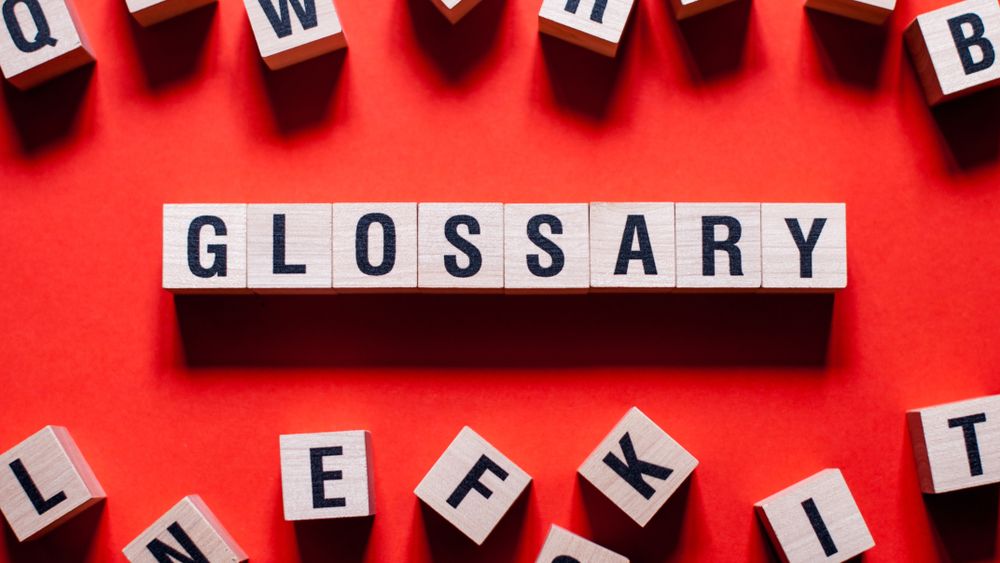
Addiction glossary with definitions
A Glossary with definitions on addiction
Addiction: A chronic and often relapsing brain disorder characterised by compulsive drug seeking and use, despite harmful consequences.
Alcoholism: A chronic and often progressive disorder characterised by the excessive and compulsive consumption of alcohol.
Substance abuse: The harmful or hazardous use of psychoactive substances, including alcohol and illicit drugs.
Dependence: A state of addiction in which the body requires a drug to function normally.
Tolerance: A decrease in the body's response to a drug after repeated use, resulting in the need for higher doses to achieve the same effect.
Withdrawal: Physical and psychological symptoms that occur when a person abruptly stops using a drug to which they have become dependent.
Detoxification: The process of removing toxic substances from the body.
Rehabilitation: A process of medical and psychological treatment for addiction, aimed at helping a person to stop using drugs and resume a normal life.
Recovery: A process of change through which an individual achieves abstinence and improved health, wellness and quality of life.
Relapse: The return to drug use after a period of abstinence.
Harm reduction: Policies, programmes and practices that aim to reduce the negative health, social and economic consequences of drug use without necessarily reducing drug consumption.
Intervention: A structured process in which family members, friends and/or professionals confront a person about their addiction and encourage them to seek treatment.
Co-occurring disorders: The presence of both a mental health disorder and a substance use disorder in the same individual.
Twelve-step programme: A set of principles and practices, originally developed by Alcoholics Anonymous, that are used to treat addiction.
Cognitive-behavioural therapy (CBT): A type of psychotherapy that helps individuals identify and change negative thought patterns and behaviours.
Contingency management: A treatment approach that uses rewards or incentives to encourage positive behaviours, such as abstinence from drug use.
Motivational interviewing: A counselling approach that helps individuals resolve ambivalence about changing their behaviour.
Pharmacotherapy: The use of medications to treat addiction.
Methadone: A medication used to treat opioid addiction by reducing withdrawal symptoms and cravings.
Buprenorphine: A medication used to treat opioid addiction by reducing withdrawal symptoms and cravings.
Naltrexone: A medication used to treat opioid and alcohol addiction by blocking the effects of these substances.
Pregabalin: A prescription drug that is used to treat a variety of conditions, including epilepsy, neuropathic pain, and anxiety. It can also be highly addictive.
Nicotine replacement therapy: The use of nicotine-containing products, such as gum or patches, to help individuals quit smoking.
Medical detoxification: The use of medications to manage withdrawal symptoms during detoxification.
Residential treatment: A type of rehabilitation that involves living in a treatment facility for an extended period of time.
Outpatient treatment: A type of rehabilitation that allows individuals to receive treatment while living at home.
Halfway house: A transitional living facility for individuals in recovery from addiction.
Sober living: A type of housing for individuals in recovery from addiction that provides a supportive and drug-free environment.
Peer support: Support provided by individuals who have experienced addiction and recovery themselves.
Recovery coach: A trained professional who provides support and guidance to individuals in recovery.
Sponsor: A mentor in a twelve-step programme who provides support and guidance to a new member.
Family therapy: A type of therapy that involves the entire family in the treatment of addiction.
Group therapy: A type of therapy in which individuals with similar issues meet together to share experiences and support each other.
Individual therapy: A type of therapy in which an individual meets one-on-one with a therapist.
Aftercare: Continuing care and support provided to individuals after they have completed a treatment programme.
Dual diagnosis: The presence of both a mental health disorder and a substance use disorder in the same individual.
Cross-addiction: The development of addiction to one substance after quitting another.
Enabling: Behaviours that inadvertently support or enable a person's addiction.
Co-dependency: A pattern of behaviour in which one person enables and supports another person's addiction.
Denial: Refusal to acknowledge or accept the existence of a problem, such as addiction.
Enmeshment: A pattern of behaviour in which family members become overly involved in each other's lives, often to the detriment of their own well-being.
Boundaries: Guidelines or limits that individuals establish to protect themselves and maintain healthy relationships.
Trigger: A person, place, thing or situation that causes an individual to crave drugs or alcohol.
Coping skills: Strategies used to manage stress and difficult emotions without resorting to drug use.
Self-care: Practices used to maintain physical, emotional and mental well-being.
Mindfulness: The practice of being present and fully engaged in the current moment.
Gratitude: The practice of expressing appreciation and thankfulness for the positive aspects of one's life.
Relapse prevention: Strategies used to reduce the risk of returning to drug use after a period of abstinence.
Harm minimisation: Policies and practices aimed at reducing the negative consequences of drug use without necessarily reducing drug consumption.
Needle exchange: A public health intervention that provides clean needles and syringes to injection drug users to reduce the risk of HIV and other blood-borne infections.
Naloxone: A medication used to reverse opioid overdose.